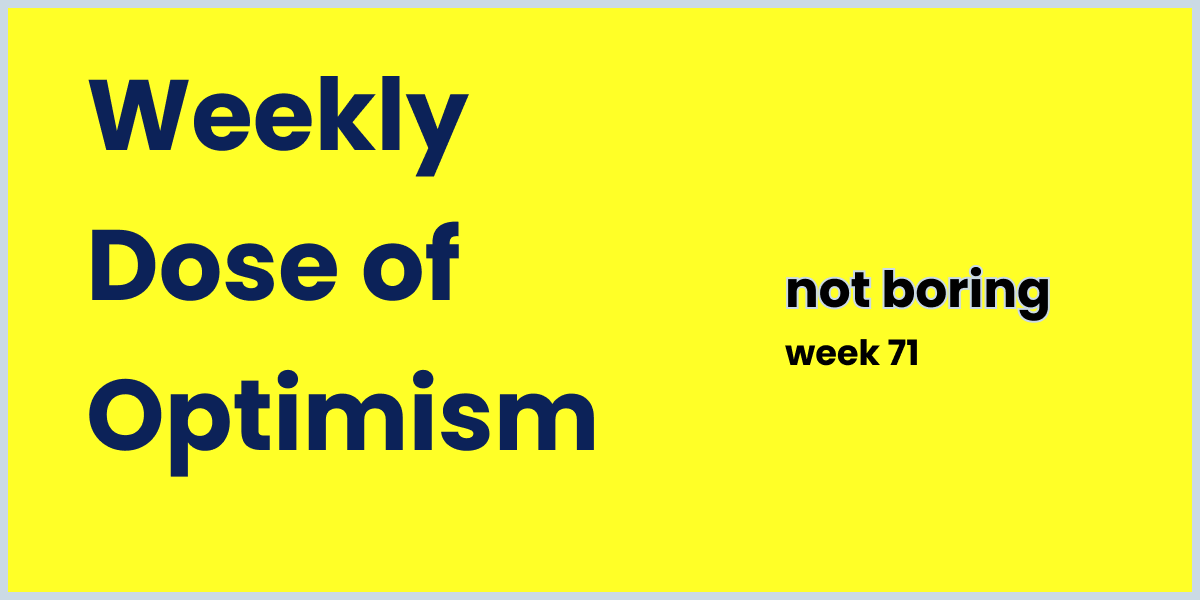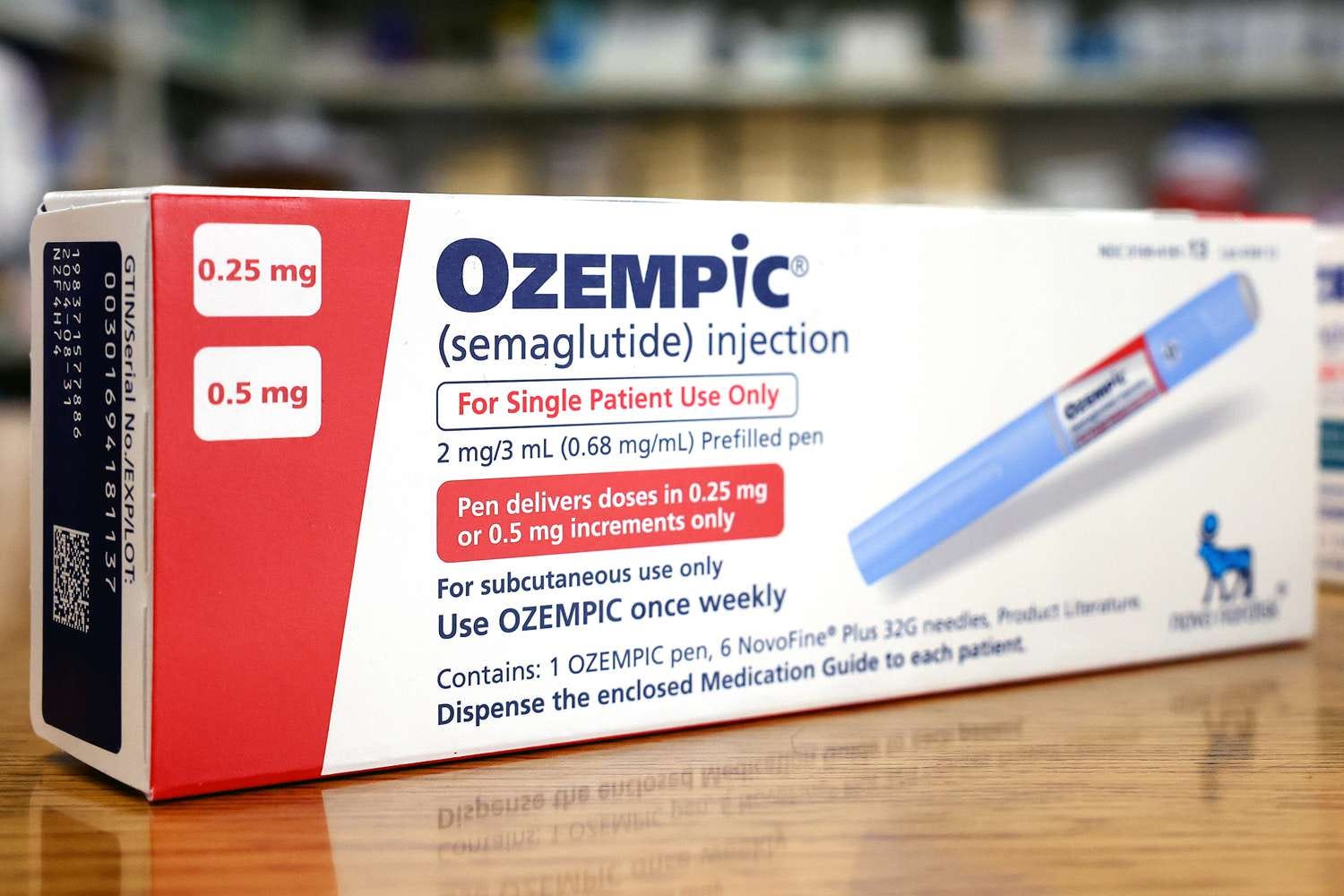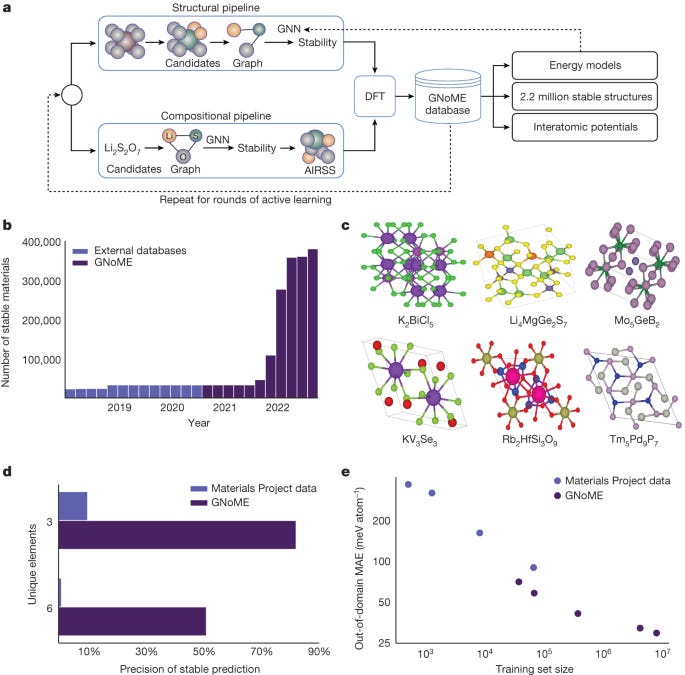Not Boring by Packy McCormick - Weekly Dose of Optimism #71
Hi friends 👋, Happy Friday and welcome back to our 71st Weekly Dose of Optimism. It seems like last week’s tryptophan did little to slow down the world this week. We were firing on all cylinders this week: another positive GLP-1 use-case, a first-of-its-kind FDA action on lifespan drugs, Google basically just solving material discovery, and geothermal energy becoming a real thing. Big week, indeed. Let’s get to it. The Weekly Dose is brought to you by… Percent Diversify your portfolio with high-yield private credit Where can investors find yield and diversification outside of stocks and bonds? Look no further than private credit, a multi-trillion dollar industry that institutional investors have been loading up on for years. These loans — which are negotiated privately and are not originated by banks — can command much higher interest rates and offer largely uncorrelated risk profiles. Percent is the only platform exclusively dedicated to private credit, making it available to everyday investors. If you’re an accredited investor, you get access to:
Visit Percent to create a free account and see all current offerings available. Unlock the asset class that can deliver diversification and greater resistance to inflation and volatility.
A new study published this week in The Journal of Clinical Psychiatry found that semaglutide led to a significant decrease in AUD (alcohol use disorder) symptoms. It’s a small study, with only six patients, but man, the hits just keep on coming. This is another major, positive finding around GLP-1 use-cases. Already, semaglutide has proven effective in diabetes management, weight-loss management, cardiovascular and kidney health. There are over 100 million obese people and over 30 million people that suffer from AUD in the US — and while there is certainly some overlap across those populations, semaglutide’s impact on health outcomes and daily quality of life could directly touch 1/3 Americans when fully rolled out. Additionally, analysts are suggesting that the treatment might have a similar effect curbing a whole range of addictive and compulsive behaviors, such as smoking, shopping, and drug use. GLP-1? More like GLP-WON! (Sorry) (2) A Life-Extension Drug for Big Dogs Is Getting Closer to Reality Emily Mullin for Wired
GLP-1s might extend human lifespan — imagine if everyone ate, drank, and smoked less. Currently, however, there is no drug on the market — GLP-1 or not — that has the stated goal of lifespan extension. That may change soon, but not for the patients you’d imagine. Loyal, a clinical-stage veterinary medicine company, earned what it believes to be the first-ever FDA acceptance that a drug can be developed and approved for lifespan extension. Its target patient? Large-breed dogs. Loyal is part of a larger firm, Cellular Longevity, that’s developing the first drugs explicitly intended to extend healthspan and lifespan— it’s starting with dogs, but ultimately plans to do so for humans, too. The company currently has three products in the pipeline, each targeting different types of dogs and each at varying stages of the FDA approval process. And while extending dogs’ lifespan is a win in-and-of-itself (I’d literally drain my bank account to extend my large-breed-dog King’s life), the hope is that the company’s research and regulatory learnings will ultimately help it introduce an anti-aging drug for humans. (3) Scaling deep learning for materials discovery From Nature
DeepMind is on a roll. AlphaGo, AlphaFold, weather predictions, and now materials. New research from Google’s DeepMind shows that its AI models can simulate millions of novel, possible materials — far surpassing even the most prolific human-staffed chemistry labs. It’s hard to predict all of the ways in which an explosion of material science output would improve our lives — but just imagine if it was way more affordable to create all of the physical things in the world and that those things were essentially perfectly designed for whatever use-case they needed to execute. Think high-performance batteries, bioactive materials for implants, self-healing composites used to make longer lasting rockets, health monitoring textiles, etc etc. Each of these things rely on new material discovery, which thanks to DeepMind, could now be as simple as running a model. Andrew Côté pointed out that combined with another just-released paper, An autonomous laboratory for accelerated synthesis of novel materials, making things in the physical world is about to get really interesting. (4) A first-of-its-kind geothermal project is now operational
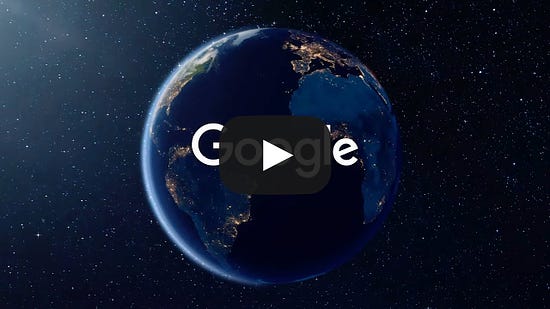 Oh look, Google again! The company announced that its partnership with Fervo to develop enhanced geothermal power is now live, operational, and powering data centers. Doing things like simulating millions of novel materials is compute and energy intensive, and the company is making a bunch of bets on how to cleanly power its data centers. One of those bets is geothermal. Geothermal power taps into the Earth's internal heat, typically from areas with volcanic activity. Water or other fluids are heated by the Earth’s natural heat and brought to the surface, where the steam is used to drive turbines that generate electricity. That carbon-free electricity can then be used to power data centers. Historically, geothermal hasn’t been scaled because of geographical limitations, cost disadvantages, and generally a limited knowledge on how to make the tech work. Google, however, is partnering with Fervo to tackle these challenges. The startup employees two technologies/strategies that give it an advantage:
In addition, partnering with Google gives them both the balance sheet to build high upfront cost drilling locations and a built-in customer whose energy needs are only going to grow overtime. Whether it’s Microsoft partnering with nuclear startups or Google partnering with Fervo, its clear that the leading technology companies of today will be major energy players in the future. Nora Belrose and Quintin Pope for AI Optimism
We’re simple people. If you launch a movement with “optimism” in the name, and write thoughtful content about your optimism, you’re probably going to show up in the Weekly Dose of Optimism. In this post, two ML researchers, Nora Belrose and Quintin Pope, make the case that AI is actually going to be way easier to control than humans are, even as it gets really smart. “The ‘white box’ nature of AIs,” they argue, “in contrast to the ‘black box’ of human cognition, enables precise and effective optimization and control methods that are impossible to use on organic brains.” What we like about the piece is that it doesn’t assume that there won’t be any challenges with AI, or that it will magically be aligned out of the box, but that people will continue to build tools to align them. It’s a challenge, but optimism is realizing that challenges can be solved. And it’s another example of the AI Narrative Tug-of-War making room in the middle for nuanced and thoughtful narratives. If it’s closer to the e/acc side, well… that’s because the e/acc side is more right. We side with anyone who believes in humans’ ability to make the future better, even if it takes some hard, smart work. Bonus: Age of Miracles Episode 7 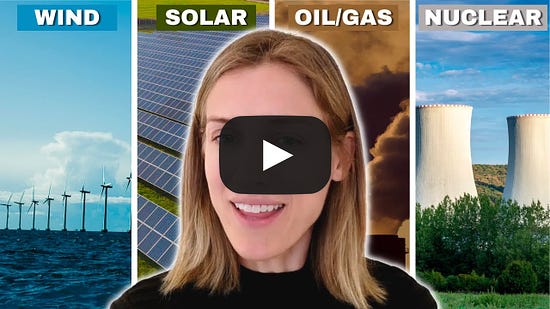 Packy here. Talk about perfect timing, we talk about Fervo in our latest episode of Age of Miracles and they show up in the news this week. Fervo isn’t a nuclear company, but this isn’t a nuclear episode. Coming from outside the energy world, one of the things that struck me is how tribal energy is, as Nadia Asparouhova discusses in Mapping out the tribes of climate. If you like solar, you have to hate nuclear. If you like nuclear, you have to hate wind. If you like clean energy at all, you have to hate fossil fuels. Or whatever. That’s a generalization, of course, but it’s more true than it should be. So even though this is a season on nuclear fission and fusion energy, the goal isn’t the proliferation of any one energy source over another. It’s more energy and human flourishing, wherever it comes from. For this episode, we talked to some of the smartest people we could find to tell us why we’re wrong about nuclear, and why their energy source of choice is the real answer. We talked to Casey Handmer and Noah Smith about solar, Angelica Oung about wind, Eli Dourado about geothermal (including Fervo), solar, wind, and batteries, and Alex Epstein and Mark Hinaman about fossil fuels. Yup, fossil fuels. We also talked to Meredith Angwin, the Grandma of the Grid, about the electric grid that all of these sources feed into. I’m not a maximalist about anything except human progress and building an Age of Miracles. Check out the episode to see all of the ways we’ll power the growing demand for energy by the year 2050 — our amazing producer Nancy Xu said it was her favorite yet! That’s all for this week. If you have some time this weekend, check out Percent’s private credit investing platform. We’ll be back in your inbox on Tuesday. Thanks for reading, Dan + Packy |
Older messages
Narrative Tug-of-War
Tuesday, November 28, 2023
How to read EA v. e/acc
Weekly Dose of Optimism #70
Friday, November 24, 2023
Ceasefire, Q*, Deep learning Cancer Detection, Warp Speed Learnings, Nuclear Wins, Starship Separation
OpenAI & Grand Strategy
Wednesday, November 22, 2023
Altman, Augustus, and Preparing for Tech's Coming Battles
Weekly Dose of Optimism #69
Friday, November 17, 2023
CRISPR, Batkid, GraphCast, Nuclear Pledge, Starship, AoM5
Blockchains As Platforms
Friday, November 17, 2023
Benefits, Drawbacks, and Trade-Offs
You Might Also Like
🔮 $320B investments by Meta, Amazon, & Google!
Friday, February 14, 2025
🧠 AI is exploding already!
✍🏼 Why founders are using Playbookz
Friday, February 14, 2025
Busy founders are using Playbookz build ultra profitable personal brands
Is AI going to help or hurt your SEO?
Friday, February 14, 2025
Everyone is talking about how AI is changing SEO, but what you should be asking is how you can change your SEO game with AI. Join me and my team on Tuesday, February 18, for a live webinar where we
Our marketing playbook revealed
Friday, February 14, 2025
Today's Guide to the Marketing Jungle from Social Media Examiner... Presented by social-media-marketing-world-logo It's National Cribbage Day, Reader... Don't get skunked! In today's
Connect one-on-one with programmatic marketing leaders
Friday, February 14, 2025
Enhanced networking at Digiday events
Outsmart Your SaaS Competitors with These SEO Strategies 🚀
Friday, February 14, 2025
SEO Tip #76
Temu and Shein's Dominance Is Over [Roundup]
Friday, February 14, 2025
Hey Reader, Is the removal of the de minimis threshold a win for e-commerce sellers? With Chinese marketplaces like Shein and Temu taking advantage of this threshold, does the removal mean consumers
"Agencies are dying."
Friday, February 14, 2025
What this means for your agency and how to navigate the shift ͏ ͏ ͏ ͏ ͏ ͏ ͏ ͏ ͏ ͏ ͏ ͏ ͏ ͏ ͏ ͏ ͏ ͏ ͏ ͏ ͏ ͏ ͏ ͏ ͏ ͏ ͏ ͏ ͏ ͏ ͏ ͏ ͏ ͏ ͏ ͏ ͏ ͏ ͏ ͏ ͏ ͏ ͏ ͏ ͏ ͏
Is GEO replacing SEO?
Friday, February 14, 2025
Generative Engine Optimization (GEO) is here, and Search Engine Optimization (SEO) is under threat. But what is GEO? What does it involve? And what is in store for businesses that rely on SEO to drive
🌁#87: Why DeepResearch Should Be Your New Hire
Friday, February 14, 2025
– this new agent from OpenAI is mind blowing and – I can't believe I say that – worth $200/month
